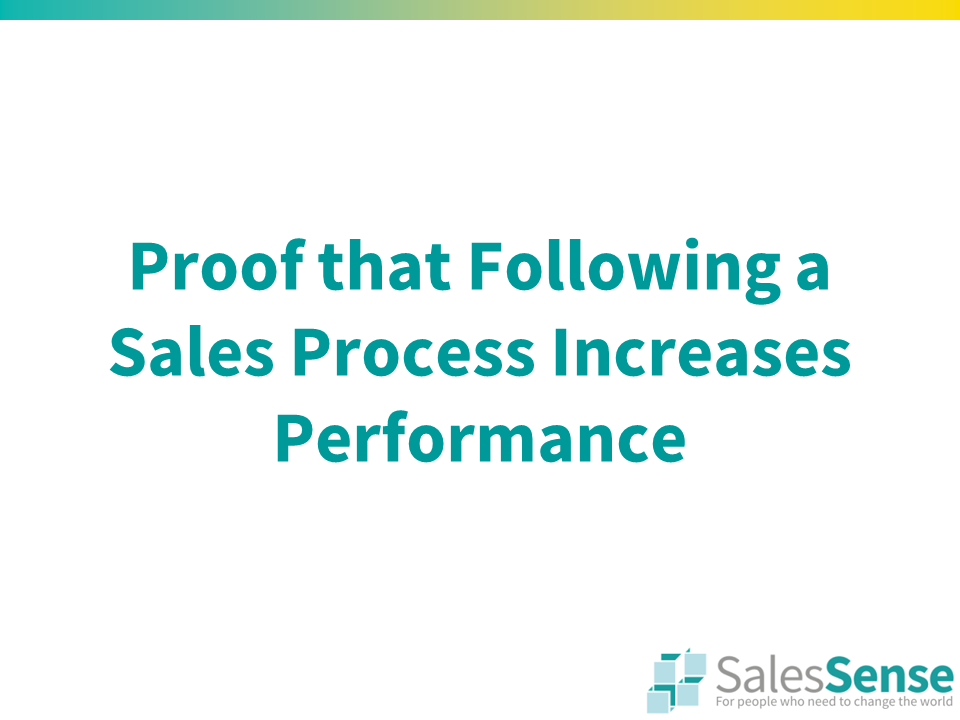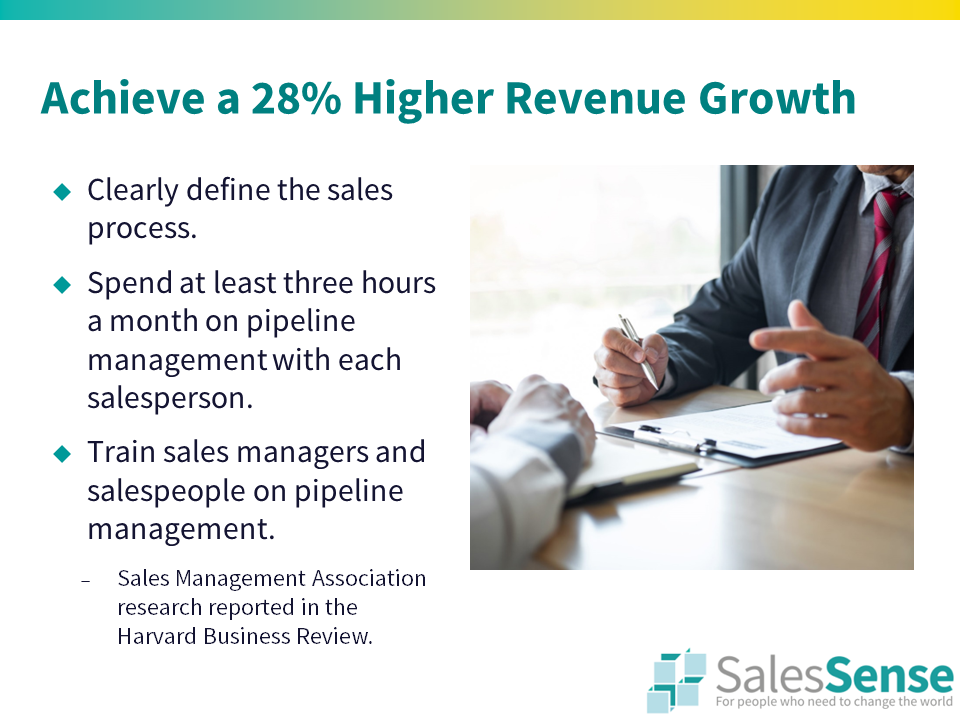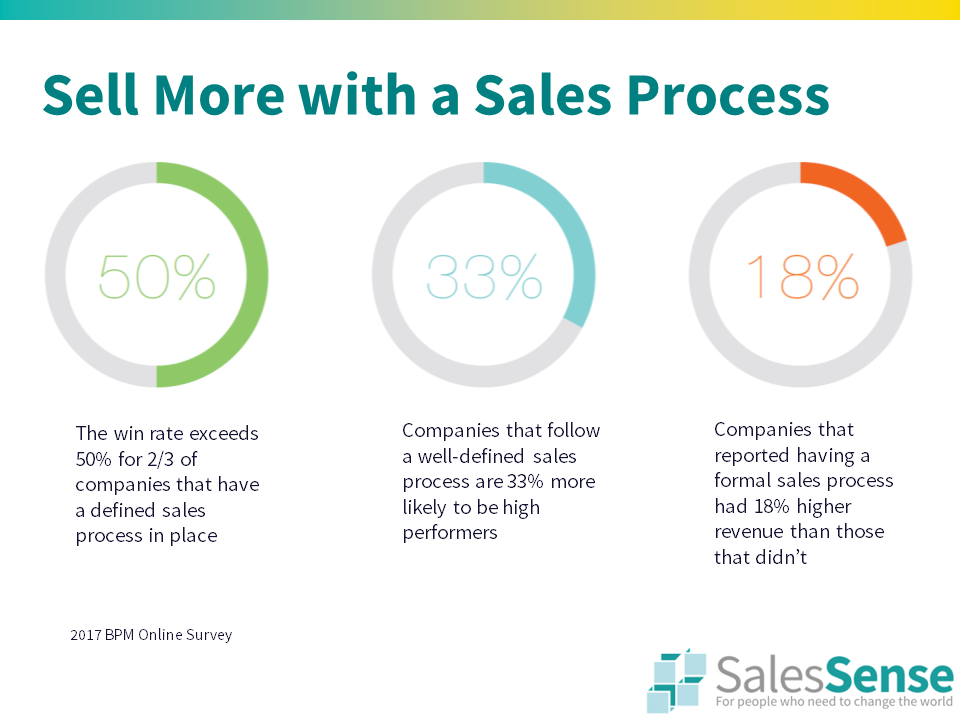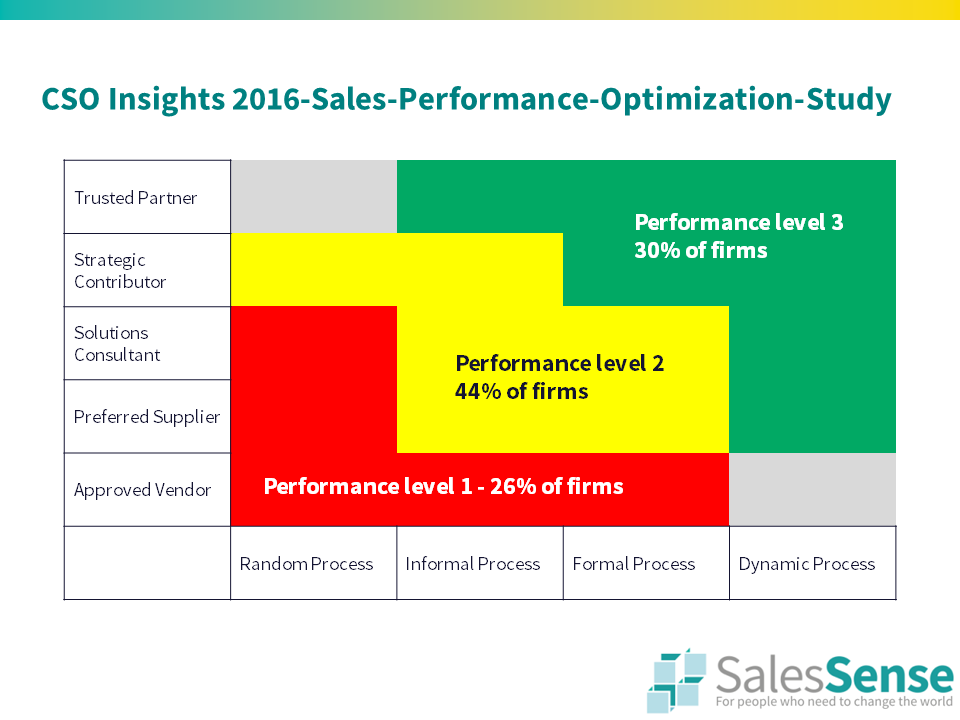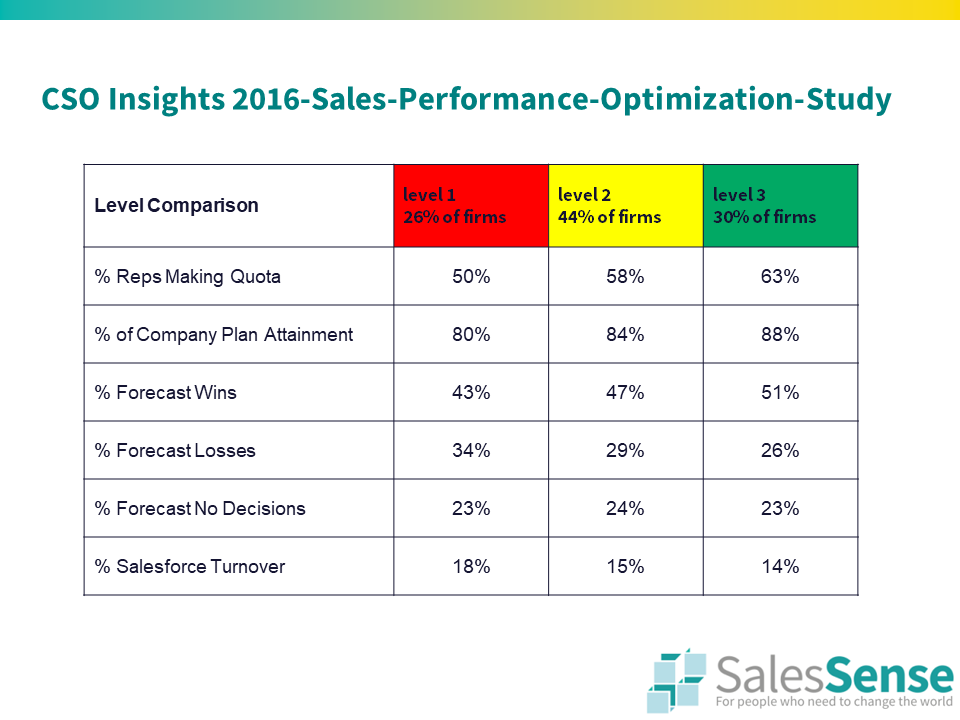The Power of a Formal Sales Process
In the dynamic world of B2B sales, success hinges not just on the skills and charisma of salespeople but also significantly on the structure and efficiency of their sales processes. While the art of selling is often perceived as an innate talent, empirical evidence suggests that a formal sales process can dramatically enhance performance, forecasting accuracy, and revenue growth. This article delves into the compelling evidence supporting the establishment and maintenance of formal methods for B2B sales professionals.
The Impact of a Structured Sales Process
High Performance and Formal Processes: Research by the Sales Management Association underscores a striking correlation between high-performing companies and the adoption of a formal sales process. A staggering 90% of top-performing companies utilise a guided, structured sales approach. This statistic alone speaks volumes about the efficacy of a formal sales process in driving sales success.
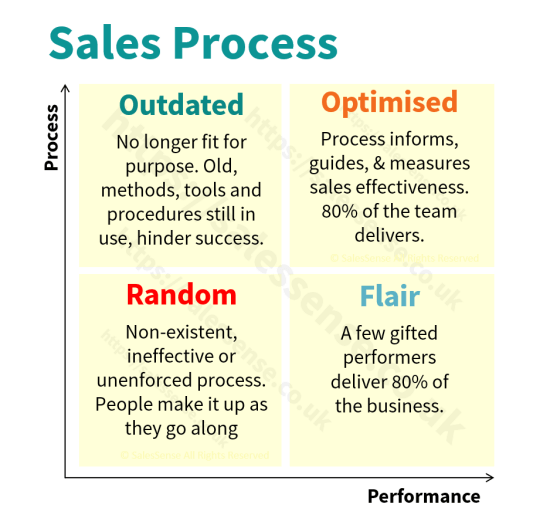
Revenue Growth: A Harvard Business Review (HBR) study reveals that companies with a standardized sales process experience up to a 28% increase in revenue compared to their counterparts without such a process. This significant uptick in revenue is a testament to the power of a well-defined sales methodology in capitalizing on business opportunities.
Forecasting Accuracy: The TAS Group's findings further bolster the case for a structured sales process. Their research indicates that 70% of companies following a structured sales process are high performers, with over 70% accuracy in sales forecasting. This precision in forecasting is crucial for strategic planning and resource allocation in B2B sales.
Comparison with Underperforming Organizations: The contrast is stark when comparing high-performing sales organizations with underperforming ones. HBR's research shows that while half of the high-performing sales organizations have strictly enforced sales processes, nearly the same proportion of underperforming organizations lack a formal sales process. This disparity highlights a structured sales process's critical role in achieving sales excellence.
The Gap in Adoption
Despite the overwhelming evidence, a significant gap exists in the adoption of formal sales processes. The Objective Management Group reports that a surprising 68% of salespeople do not follow a structured sales process. This gap represents a substantial opportunity for sales organisations to enhance their performance and gain a competitive edge.
The Future: Digital Evolution of Sales Processes
The future of B2B sales is increasingly digital. Predictions suggest that by 2025, 75% of B2B sales organisations will integrate AI-guided selling solutions into their sales strategies. This evolution underscores the importance of not only adopting a formal sales process but also continuously updating it to leverage technological advancements.
Benefits of Using a Formal Sales Process
Using a well-defined sales process in B2B sales brings many benefits that significantly improve the efficiency and effectiveness of a sales team:
1. Improved Sales Efficiency and Effectiveness
A structured sales process helps salespeople understand the customer's buying process at each sales stage from lead generation to closing a deal. Having a structure is like a pre-flight checklist. It ensures that no steps are missed and that each opportunity is handled consistently and professionally.
2. Better Lead Qualification
A clear sales process helps salespeople qualify leads and prioritise their efforts on prospects that are more likely to convert. This reduces wasted time on leads that are unlikely to result in sales.
3. Increased Forecast Accuracy
With a structured sales process, salespeople and managers can track where each opportunity is in the sales funnel, making it easier to predict future sales more accurately. This helps in resource planning, setting realistic goals, and managing expectations with stakeholders.
4. Enhanced Sales Training and Onboarding
A documented sales process serves as a guide for training new salespeople. It helps them understand the company's sales methodology, expected behaviours, and best practices, reducing the learning curve and increasing their chances of success.
5. Consistency and Repeatability
By following a defined process, sales teams can deliver a consistent experience to all prospects. This consistency helps build trust and credibility with potential customers and ensures that high standards are maintained across all sales interactions.
6. Data-Driven Decision Making
A sales process allows for better tracking of key performance indicators (KPIs) such as conversion rates, sales cycle length, and win/loss ratios. With this data, salespeople and managers can identify bottlenecks, refine strategies, and make informed decisions to optimise the sales process.
7. Improved Customer Experience
A structured sales process helps ensure that customer interactions are timely, relevant, and personalised. It helps salespeople better understand the customer's needs and provide tailored solutions, enhancing the overall customer experience.
8. Higher Sales Conversion Rates
By having a clear roadmap for navigating the complexities of B2B sales, sellers can better guide customers through their buying journey, address their concerns more effectively, and increase the likelihood of closing deals.
9. Effective Pipeline Management
A sales process enables managers to monitor the sales pipeline more effectively. They can identify which deals are at risk, which ones are moving smoothly, and where intervention is needed to keep deals on track.
10. Alignment Between Sales and Marketing
A well-defined sales process often involves collaboration with marketing teams to ensure that the messaging, lead-generation efforts, and content are aligned with the sales strategy. This alignment improves lead quality and nurtures prospects more effectively.
11. Facilitates Continuous Improvement
A sales process provides a framework for continuous improvement. By regularly analysing what works and what doesn't, salespeople and their managers are better able to learn from past experiences and implement changes to improve performance over time.
12. Better Resource Allocation
With a clear understanding of where prospects are in the sales funnel and the likelihood of conversion, companies can allocate resources (time, effort, and budget) more efficiently to maximise returns.
Conclusion
The evidence is clear: establishing and maintaining a formal sales method in B2B sales is more than beneficial; it's essential for high performance, revenue growth, and accurate forecasting. For B2B sales organisations aiming to climb the ladder of high performance, establishing, communicating, and measuring sales processes is not just a good strategy, it's a critical business imperative.
Article by SalesSense
If you lack the time or resources to improve your sales processes, outsourced sales effectiveness services can help. Telephone +44 (0)1392 851500. We will be pleased to learn about your needs or discuss some options. Alternatively, email custserv@salessense.co.uk or use the contact form here.
